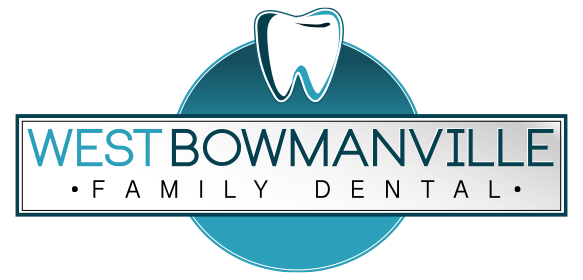Tartar is a very common problem and is also called calculus. Tartar consists of a calcified deposit that can build up over your teeth, particularly just around the gumline. It forms if plaque, a sticky biofilm, isn’t removed regularly through brushing and flossing. Any dental plaque that remains on your teeth after oral care can harden into tartar within two or three days. Once the tartar has formed, you cannot remove it by brushing your teeth. Additionally, tartar buildup in Newcastle makes it easier for more plaque to stick to your teeth, and it is a rough, crusty substance that increases the risk of cavities, bad breath and gum disease. Only dental professionals can remove calculus, which is why your regular checkups and hygiene appointments at West Bowmanville Family Dental are so important.
What Can Cause a Tartar Buildup on Teeth?
You might think that if you take good care of your teeth and brush and floss regularly that your risk of tartar is low. However, dental plaque builds up over everyone’s teeth, and plaque contains harmful bacteria that can damage your teeth and gums, producing acid and toxins. Although everyone has dental plaque, your risk is higher if you eat a lot of sugary or starchy foods like cookies, bread, potato chips and so on. It is higher in people who smoke or chew tobacco or those who have dry mouth, a condition called xerostomia in Courtice. With xerostomia, insufficient saliva is present to keep the mouth clean, moist and comfortable, and the drier conditions allow the bacteria in dental plaque to thrive.
Although it may be impossible to completely avoid plaque from forming over your teeth, you can prevent most of it from forming into calculus or tartar.
Preventing Tartar Buildup
The best way to prevent calculus from building up over your teeth is to ensure you brush your teeth at least twice a day. Spend at least two minutes brushing your teeth each time, ensuring you clean each tooth surface thoroughly and methodically.
Ensure you use fluoridated toothpaste, and after cleaning your teeth, spit but don’t rinse, as this will leave a thin layer of fluoride ions coating your teeth and providing a bit more protection. Make sure you change your toothbrush regularly, usually every three months or sooner, if the bristles look splayed and worn. Also, choose a soft-bristled toothbrush that will not damage your tooth enamel. You don’t need to brush your teeth hard or use a hard-bristled toothbrush to clean them thoroughly, as it is all down to using the right technique.
Try to eat a healthy diet and if you have something sugary or starchy, include it as part of your main meal and try not to snack in between meals on these foods. Eating something sweet or high in carbohydrates feeds the harmful bacteria in dental plaque. Consequently, your mouth becomes more acidic for at least half an hour afterwards, increasing your risk of cavities.
If you smoke, try your best to quit for the sake of your oral health and, of course, for your general health. Your GP can probably provide useful advice on quitting successfully.
Removing Tartar Buildup
We highly recommend regular hygiene appointments in Clarington. Usually, most people need to see our hygienist every six months, at the same time as seeing their dentist for a checkup. Even if you clean your teeth meticulously, some plaque will inevitably remain in nooks and crannies, and we can ensure this is removed regularly. Our hygienist can use special hand tools to remove plaque and tartar buildup thoroughly. We can also work with you to ensure your oral care routine is as effective as possible.

